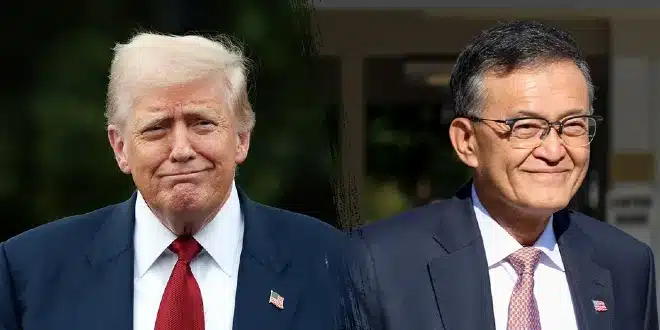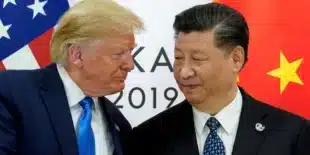Treasury Secretary Scott Bessent and Commerce Secretary Howard Lutnick confirmed Tuesday that the Trump administration is actively considering a direct investment in Intel, one of America’s most important but struggling chipmakers. While both officials underscored the strategic significance of bolstering U.S. semiconductor production, they offered differing perspectives on the ultimate goal of such a deal.
If finalized, the move would represent a rare step by Washington—using taxpayer money to buy equity in a private corporation. Typically, federal support for the tech sector has taken the form of grants, subsidies, or tax breaks rather than outright ownership.
A Bid to Stabilize U.S. Chipmaking
Speaking on CNBC, Treasury Secretary Bessent suggested that any potential equity purchase should be viewed as a national security measure rather than a profit-driven move. He explained that converting part of the CHIPS and Science Act’s federal grant money into an ownership stake would help ensure Intel’s long-term viability as a domestic chip producer.
“The last thing we’re going to do is take a stake and then pressure companies to buy from Intel,” Bessent said. “This is about stabilizing production here in the U.S., not drumming up artificial business.”
Bessent stressed that America’s heavy dependence on Taiwan, the world’s dominant chip manufacturing hub, creates an unacceptable “single point of failure.” With rising tensions between Washington and Beijing, officials across the U.S. government have warned that any disruption to Taiwanese supply could send shockwaves through global technology markets.
Lutnick Pushes for Returns on Investment
Commerce Secretary Lutnick echoed concerns about U.S. reliance on Asia for chips, framing the issue as both an economic and a security risk. However, his view on the structure of the deal diverged from Bessent’s. According to Lutnick, former President Trump does not support giving away subsidies without expecting something in return.
“The Biden administration was literally giving Intel money for free,” Lutnick argued, pointing to grants issued under the bipartisan CHIPS Act. “Donald Trump’s perspective is different: if taxpayers are investing billions in a company worth $100 billion, America should get equity back. That’s the benefit of the bargain.”
Lutnick suggested that a government stake in Intel would align better with Trump’s broader philosophy of transactional deals—where public funds must yield measurable returns.
Intel’s Position and Industry Context
Intel, once the undisputed leader in chipmaking, has fallen behind rivals such as Nvidia and Qualcomm, particularly in fast-growing markets like mobile processors and artificial intelligence. The company recently announced plans to cut 15% of its workforce as part of a major restructuring.
When asked about the reports, Intel declined to confirm any talks but reiterated its alignment with the administration’s priorities. “We are deeply committed to supporting efforts to strengthen U.S. technology and manufacturing leadership,” the company said in a statement, while refusing to comment on “rumors or speculation.”
The White House also downplayed speculation. Spokesman Kush Desai noted that “any discussion of hypothetical deals should be regarded as speculation unless officially announced by the administration.”
Wider Implications for U.S. Tech Policy
The possibility of Washington taking equity stakes in private companies comes at a time of growing tension in the global semiconductor market. Recently, Nvidia and AMD agreed to pay the U.S. government 15% of their chip sales in China in exchange for export licenses—an unusual arrangement that highlights how geopolitical concerns are reshaping the industry.
Some insiders believe a government stake in Intel could set a precedent for further federal involvement in other critical tech firms. This would mark a significant shift from past industrial policy, where subsidies were used to encourage innovation without direct state ownership.
President Trump has been vocal about his ambition to revive U.S. manufacturing and restore America’s dominance in key technologies. He recently met with Intel CEO Lip-Bu Tan after initially calling for the executive’s resignation over alleged ties to China. Despite the controversies, Trump continues to highlight investments from Apple, TSMC, and Nvidia in U.S. facilities as signs of progress under his administration.
What Comes Next
While no deal has been finalized, reports from Bloomberg, The New York Times, and The Wall Street Journal indicate that the administration is weighing a 10% stake in Intel. Such a move could help stabilize the company during its turnaround but would also spark debates about the role of government in private enterprise.
For now, both Bessent and Lutnick agree on one point: securing America’s chip supply is essential. The question that remains is whether taxpayer money will be used solely as a stabilizing tool—or as a genuine investment with expected returns.


